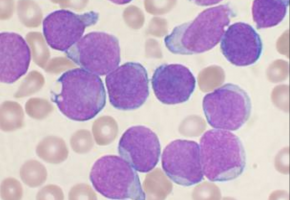
Acute T-cell lymphoblastic leukaemia is a rare type of blood cancer that affects mostly children.
This blood cancer appears from the precursor cells that produce T lymphocytes (a type of white blood cells).
A new study, conducted in mice, shows that leukaemia can emerge as a consequence of prolonging the presence of precursor cells in the thymus.
These findings can be found in The Journal of Immunology.
T lymphocytes are essential to fight infections and prevent cancer.
They develop in the thymus, an organ located above the heart.
Their development relies on the seeding by precursor cells that come from the bone marrow and enter the thymus to differentiate and learn to protect the organism.
This is a process secured by an "assembly line" in the thymus in which many of the precursor cells enter, but are discarded if they malfunction.
The work led by Vera Martins shows that if there is a problem with the precursor cells that come from the bone marrow, the thymus alone can maintain its "assembly line" for some time.
However, this function is associated with a high risk of developing T-cell acute lymphoblastic leukaemia.
The team tested several genetic factors in mice known to be involved in the formation of T lymphocytes.
The results showed that in all conditions tested there was an 80% incidence of this type of leukaemia.
"Our study shows the importance of investigating in detail the cellular, genetic and physiological mechanisms associated with the process of normal cell differentiation, and opens the door to understand how leukaemia can appear in cells that should be learning to defend our body," said Vera Martins.
Source: Instituto Gulbenkian De Ciencia